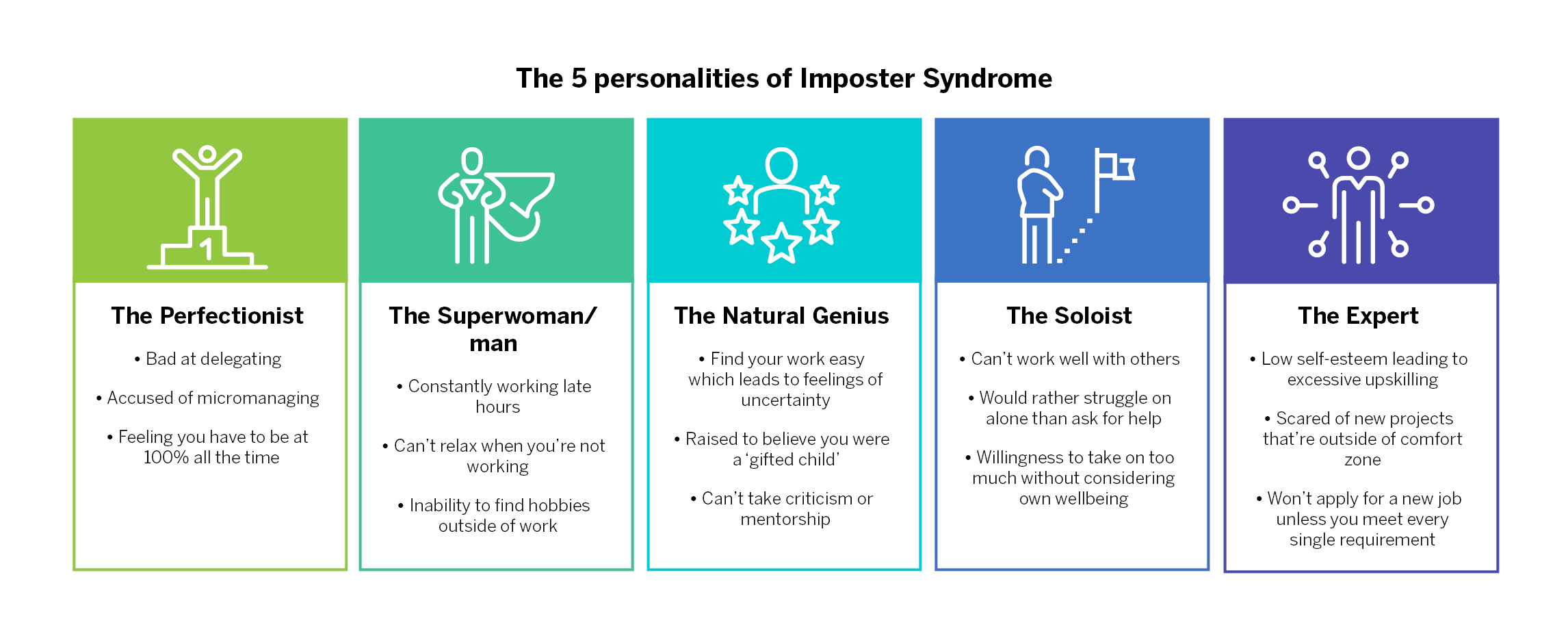
HRD investigates the impact on leaders of 'constantly being told you can't'

When Emma first noticed Imposter Syndrome sneaking in, she felt like she wasn’t qualified to be in the room.
“I've experienced Imposter Syndrome all throughout my career,” Emma tells HRD. “This occurred because I felt too young or felt like I didn't have the right experience. It also happened when I was the only woman or only person of colour in a situation or in a key position.”
And Emma, a global leader in the HR space speaking under the proviso of anonymity, is not alone. Imposter Syndrome is on the rise post-pandemic, with data from The Hub Spot finding that 90% of female employees suffer from it while 48% admit to having intrusive thoughts.
Dr Valerie Young, an expert on Imposter Syndrome, categorises it into five subgroups; the Perfectionist, the Superwoman/man, the Natural Genius, the Soloist, and the Expert. In her book, The Secret Thoughts of Successful Women: Why Capable People Suffer From the Imposter Syndrome and How to Thrive in Spite of It, Dr Young analyzes the impact of these anxieties on typically “high performing” professionals – looking at where they come from and how they manifest.

But what exactly is Imposter Syndrome? And how does it present itself in an organizational setting? Workplace psychologist Dr Amanda Potter tells HRD that it’s a mental issue with a very physical response.
“Imposter Syndrome manifests either when you’re pushing yourself too hard or you’re avoiding an issue. They’re the main two circumstances in which we feel like an imposter. Having done research into Imposter Syndrome, we found that we all have self-limiting beliefs – something which predicts Imposter Syndrome.
“These could be beliefs formed in childhood – things we’ve been told about ourselves that we come to perceive as fact. And, when we’re put under pressure, these beliefs resurface – leading to self-doubt and anxieties.”
These childhood beliefs, or insecurities, have a way of harming individuals later in life. Ashira Gobrin, chief people officer at WaveHQ, tells HRD that Imposter Syndrome is conditioned in the classrooms of our youths – making it more of a societal problem than many want to admit. So much so, that a study published in the Journal of Educational Psychology found that over 70% of gifted elementary school students reported experiencing Imposter Syndrome, with more than half of high-achieving high school students having gone through it too.
As a trained brainspotting therapist and handwriting analyst, Gobrin says she has learned a lot about how our personalities and character form in early development – and how those feelings linger as we grow up. For better and for worse.
“It comes back to those old playground stereotypes,” she tells HRD. “Back in the classroom, when you have a teacher saying, ‘Girls can’t do math or science’, or speaking to an immigrant child slowly as if they’re stupid – this behaviour reinforces ideas in our brains over and over again.”
Another aspect of Imposter Syndrome stems from childhood parental development – outside of the school.
“Many of us grow up in environments in which our parents put high demands on us,” adds Gobrin. “In more underprivileged elements of society, where parents just don't have time to nurture their kids because they’re putting bread on the table, you’re more likely to grow up constantly working to feel like you’ve earned your place.
“If you’re constantly being told you can’t, you start to believe it.”
Imposter Syndrome may be made in the classroom, but it’s certainly reinforced in the workplace. And for women, particularly women of colour, the issue is spiralling towards a full-blown pandemic. A 2021 report from Female Quotient found that 79% of women had experienced Imposter Syndrome at some point in their lives.
“It comes back to the element of belonging,” says Gobrin. “Whenever you feel like you don’t fit in, having that sense of being ‘the other,’ Imposter Syndrome sneaks in. That’s why women suffer with it more – women of colour even more so – as well as minority groups and the LGBTQ community and anyone with a physical handicap.”
That’s not to say Imposter Syndrome doesn’t impact men – it does, it just presents itself differently. Dr Potter tells HRD that men are better at masking Imposter Syndrome than women – there’s a veneer of confidence that’s more impenetrable. Having worked with groups on this very topic, Dr Potter says that the men she’s helping seem to mask the problem better.
“They have strategies and tactics to cover it up,” she says. “But do they have the emotions of Imposter Syndrome? Absolutely.”
So how can we help eradicate the syndrome for good? Well, according to Dr Potter, it comes back to testing and eradicating biases.
“If we can help people understand the difference between performance anxiety and Impostor Syndrome, that would be great,” she tells HRD. “Unfortunately, some people still use the term Imposter Syndrome to denote everything from depression to stress to anxiety – which is incorrect. Employers need to help people understand the difference.”
From there, individuals need to recognize what what’s triggering Imposter Syndrome – what situations make you feel anxious? What environments are you in? Are you at your worst? Do you feel like your failing? What are the biases? What are the limiting beliefs that are going to trip you up? And most importantly, what are the coping strategies? How can you overcome it and keep yourself in balance?
“That’s the key to succeeding here,” adds Dr Potter.
Crucially, if you think you’re suffering from Imposter Syndrome as a leader, don’t bury your head in the sand. Speaking with Emma, she encourages reaching out to friends and loved ones for a much-needed confidence boost.
“It’s amazing how others see us in a way that we never can,” she tells HRD. “Being honest and vulnerable about my doubts and listening to others' perspectives about what I could be doing really helped and still helps to this day. Focusing on past accomplishments and embracing my fear and doubts to expand my horizons also helped.
“In other words, I didn't minimize my feeling of Imposter Syndrome, but rather ‘sat with the thought’, processed, talked with others and then moved through and past it.”